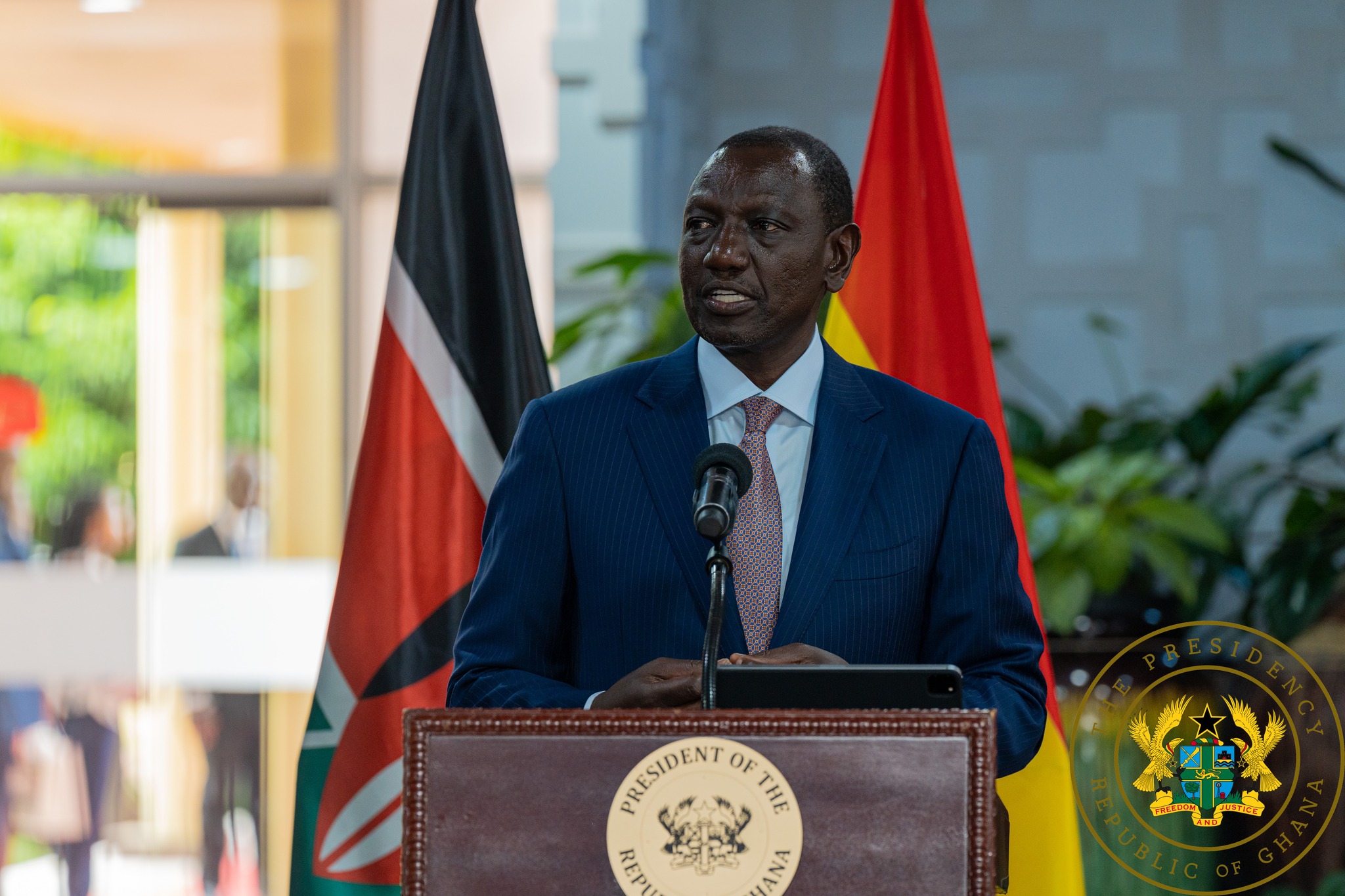
Our Projects are
Transforming African Trade
Quick Contacts
2nd Floor, Fidelity Insurance Centre Waiyaki Way, Westlands

Accra, April 4, GNA – Dr William Samoei Ruto, the African Union (AU) Reform Champion and President of Kenya, has disclosed plans to ratify all financial institutions under the Union.
The decision, he said, would create a strong financial architecture to provide the needed support to African businesses for the acceleration of intra-trade, commerce, and investment on the continent.
President Ruto noted that the decision by the AU was to also ensure the speeding up of the achievement of the objectives of the African Continental Free Trade Area (AfCFTA) agreement.
He was speaking during an engagement with captains of industry and financial sector players upon his reception at the AfCFTA Trade House by Mr Wamkele Mene, Secretary General of the AfCFTA Secretariat.
The event was part of President Ruto’s three-day official working visit to Ghana.
“I will be working with President Nana Akufo-Addo to ensure that all financial institutions under the AU are ratified, so that we can build the necessary financial ecosystem to support trade, investment and business in our continent,” he said.
On some of the major challenges facing business people on the continent with respect to intra-African trade, President Ruto noted that the continent spent about US$5bn annually to deal with exchange rate issues.
However, the AU Reform Champion expressed confidence that the setting up of the Pan-African Payment and Settlement System (PAPSS) by the African Export-Import Bank (Afreximbank) would solve that challenge.
He noted the introduction of the cross-border instant payment system for easing the pressures on current accounts and demands on foreign exchange liquidity was to ensure “we don’t lose in trade because of different currencies.”
Recounting the work done so far on the implementation of the free trade agreement, he said the AfCFTA Secretariat is appropriately situated to ensure its success.
President Ruto then underscored the potential of the free-trade agreement in addressing Africa’s poverty situation, and called for enhanced synergy among African governments to create institutions to make all its objectives, a reality.
Mr Mene, Secretary General of the AfCFTA Secretariat, said: “AfCFTA is probably Africa’s last opportunity to breakdown this colonial economic model to ensure that we have movement of persons across the continent, create jobs for many young African, bring smallholder farmers into the formal trade.”
He, therefore, called for the acceleration of efforts in its implementation, noting that though there might be challenges, lessons learnt from other similar trade pacts to make the AfCFTA distinct.
“We’ve learnt from the history of the European Union (EU), observed the lessons of the creation of a single market, and as a result, our member States have adopted an agreement that sets Africa apart in a number of ways,” he said.
He noted for example that, the AfCFTA happened to be the only known trade agreement with a legally binding obligations to create opportunities for young people and women.
“We’re taking concrete steps to make sure that the protocol on digital trade and the protocol on women and youth in trade are actually fully implemented,” the Secretary General of the AfCFTA said.
That done, he noted, would lead to an inclusive economy and trade, eliminating barriers to trade for young people in Africa, including Small and Medium-sized Enterprises (SMEs).
“When we commit and resolve, we achieve results,” Mr Mene said, while pledging the Secretariat’s commitment to ensure that Africa’s one market objective was achieved in time.
Read original article
Disclaimer: The views and opinions expressed in this article are those of the authors and do not necessarily reflect the official policy or position of TradeMark Africa.